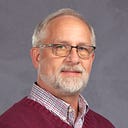The day the ‘Music Man’ came to Monmouth
MONMOUTH, Ill. — In Meredith Willson’s The Music Man, Professor Harold Hill recounts to the people of River City the “electric thrill” he enjoyed when W. C. Handy, John Philip Sousa and four other legendary band leaders brought “the cream of every famous band” together on the same historic day.
It may have been that line that inspired Willson to bring together the cream of high school bands from Alexis, Monmouth, Roseville, Yorkwood and Warren on the historic day of April 28, 1970. The 107 handpicked musicians who performed that evening in the Monmouth College gymnasium also must have enjoyed an electric thrill, because 50 years later they are still talking about it.
“I still get goosebumps thinking about that performance,” said Suellyn Flynn-Rieckelman. I had a cornet solo in “Till There Was You” and performing for him was simply thrilling.”
“As a lover of theater, it was one of the biggest thrills of my life,” said David Nichols, who played stand-up bass. “My memory is that he was a very kind man but also a perfectionist. He made sure we sounded as good as we possibly could.”
Sharon Reed, who played timpani/chimes,” recalls, “It was an honor and an amazing experience, especially visiting with Meredith Wilson after rehearsal.”
Mark Algren, who played the Sousaphone (appropriate, because Willson was formerly a member of Sousa’s band), remembers that the famous conductor had to change clothes at the intermission — “I think he was a ‘sweater’ and was prepared with a change of clothing. What an honor to have him come to Monmouth. I never heard who was able to make that happen.”
Willson in fact appeared at Monmouth College under the auspices of the Concert-Lecture Series, a forerunner of today’s Maple Leaf Concert Series, in which community members purchased season tickets to attend musical events and lectures by well-known personalities.
Members of the Honor Band, who had never played together prior to 2 p.m. that afternoon, spent three hours in intense practice, after which Willson later pronounced them “as fine a band as you will ever find, anywhere. I really enjoyed myself with them — their talent was so great and their attitude toward the work was so fine.”
An estimated 600 patrons packed into the old Monmouth College gym for the program that began with von Suppe’s “Light Cavalry Overture,” followed by Willson’s own composition “Mail Call March,” which was built around the two basic themes in a homesick soldier’s mind — the bugle call for mail and the strains of “Home Sweet Home.”
The band continued with more of Willson’s hits, including excerpts from The Unsinkable Molly Brown and “Centennial March,” his gift to his hometown of Mason City, Iowa, for its 1953 centennial celebration.
The audience then thrilled to selections from Willson’s signature musical, The Music Man, including “Lyda Rose,” “Till There Was You,” “Marian the Librarian” and, of course, “76 Trombones.”
Willson surprised the audience by reminiscing it was his second appearance in Monmouth, the first having come in 1926, when he was a 24-year-old flutist, playing in John Philip Sousa’s band. That band performed for crowds estimated at 4,000–5,000 in a temporary tabernacle erected at the southwest corner of West Broadway and South A Street for a weeks-long Billy Sunday revival.
The reason that it stuck in his memory, Willson explained, was that the flute section cracked up during rendition of “The Stars and Stripes Forever,” and he wanted to apologize to residents who might have been there — or to their descendants.
One person in the audience who had actually been there in 1926 was C. P. Patterson, director of the Warren High School Band and an organizer of that night’s concert. Patterson, who didn’t specifically recall the flute incident, remembered the concert, because he performed with the Sousa band as a member of the Monmouth Grade School Band.
Willson’s recollections about playing under Sousa served as a prelude to the performance of four of Sousa’s most memorable works. But, ever the teacher, Willson often stopped the band in the middle of a selection to demonstrate how Sousa himself would have wanted a piece played. Competition among bands, he explained, was so strong in those days that Sousa would never let his published music be marked dynamically as Sousa’s band played it. Instead, Sousa would alter the markings so a piece would sound different from his band’s rendition.
Nothing could have been more fitting as a finale than “The Stars and Stripes Forever,” and the band performed it admirably — including the flute section. After a standing ovation, Willson obliged the audience with an encore of that same song, stating it was the only piece that could be played as an encore to “Stars and Stripes Forever.” The encore brought another standing ovation.
Willson and his wife, Rosemary, flew the next morning to South Dakota for another concert that evening, but his appearance at Monmouth left a lasting tradition. The Honor Band, selected for the concert, became an annual tradition, with top musicians from area schools performing at an annual Honor Band Festival held for several years in the spring.
Jeff Rankin is an editor and historian for Monmouth College. He has been researching, writing and speaking about western Illinois history for more than 40 years.
